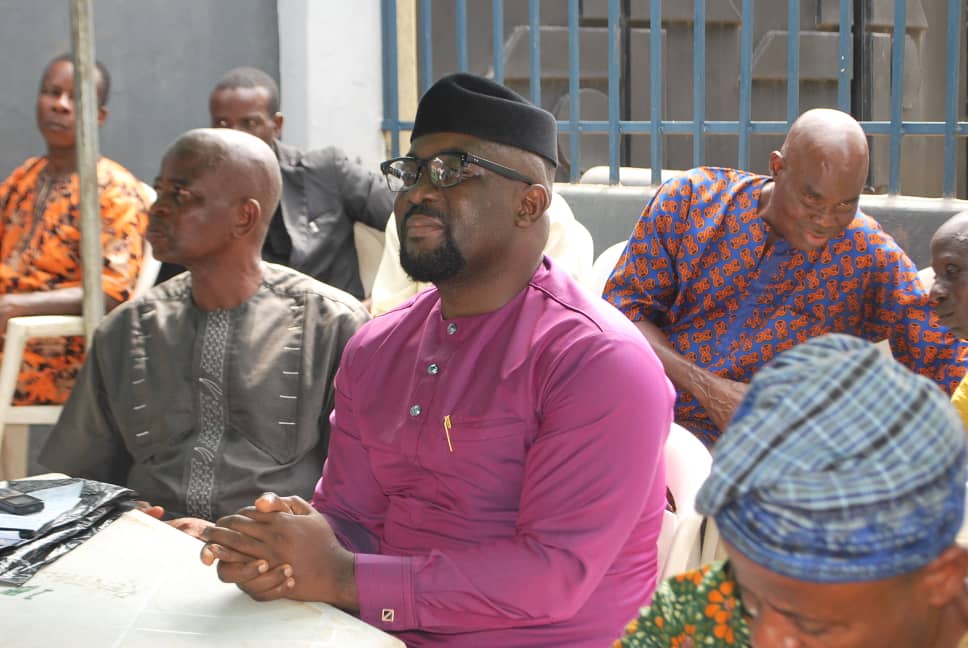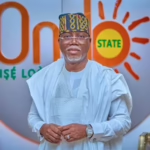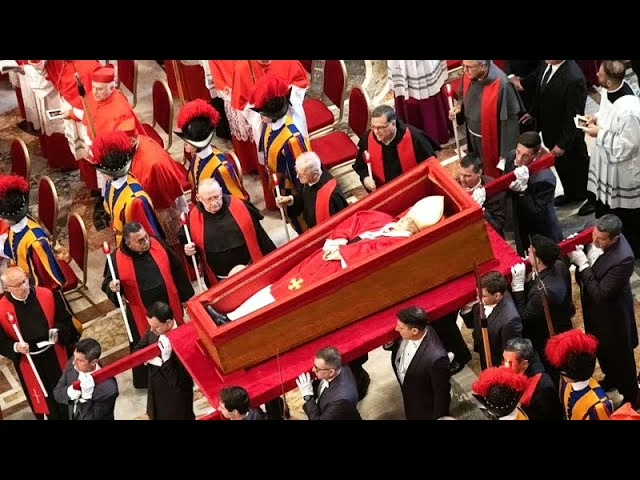By Ologun Ayodeji
Chaos syndrome is a chronic decline in the political system’s capacity for self-organization. It begins with the weakening of the institutions and brokers—political parties, career politicians, and interest groups—that have historically held politicians accountable to one another and prevented everyone in the system from pursuing naked self-interest all the time.
As these intermediaries’ influence fades, politicians, activists, and voters all become more individualistic and unaccountable. The system atomizes. Chaos becomes the new normal—both in campaigns and in the government itself.
This has been one reason it is imperative that voluntary and constitutional association and group gathering should not be seen to be what is not but be seen as what it is.
Whatever is put in place to emancipate and make life easier for the people especially in a cosmopolitan city like Ondo, such should be supported by every good intent indigene and resident of Ondo city knowing that our city comes first and from there, development can be spread.
There has been lots of ill given assumptions and insinuations as well as blackmail to the intent and purpose of Hon. Abiola Oladapo support group without such people taking time to view and review the mission and vision for the idea.
Saying it unequivocally yet again, Oladapo is given to philanthropy not for the gains of seeking political office but for true emancipation of the people and lifting as many as possible out of poverty. This has been made clear by unrelenting giving to the people in terms of scholarships, business set up,giving materials and foodstuffs to the people before, during and after contesting for public office.
Our intricate, informal system of political intermediation, which took years to build, did not commit suicide or ended with failure to attain a political office or a public office. For some times now, known political jobbers who only takes but never gives have attacked intermediaries as corrupt, undemocratic, unnecessary, or (usually) all of the above.
Some rather unfuturistic individuals have been busy demonizing and disempowering our efforts at gathering the people and empowering them, which is like spending energy abusing and attacking your own immune system. Eventually, you will get sick. We can’t afford and won’t allow our people and city to get sick!
That we gather people on a weekly basis irrespective of political party or affiliation should count and encourage others to do the same to have an emancipated city devoids of semi gods who only takes but never gives. It is a new dawn and the generational need must be met.
Bringing up a chaos syndrome compounds the effects of those developments, by impeding the task of organizing to counteract them. That people have seen the light and can differentiate who loves them and who uses them is the first step in emancipating the mind of the people.
Gathering people is nothing new, and they are not necessarily bad, as long as the governing process can accommodate them.
Like many disorders, chaos syndrome is self-reinforcing. This is the problem with some establishment in Ondo city. They gather people to feed them lies of half truths gathered in the news that is already in the public space, twist such to satisfy their ego and to perpetually keep the people under them while impoverishing them and using the strength of their number for personal negotiations and entrenchment.
Such establishments has been crumbled by the the election of Abiola Makinde into the house of representatives which must be sustained and such most be encouraged to bring the new order close as much and as possible.
Year 2020, about a year from now, the campaign to govern Ondo state is under way by political Aspirants. Ondo City being a major city must produce a voice for the sake of development of the community.
Voters are angrier than ever at politicians, at compromisers, at the establishment. Political groups are incapable of working together on anything, even when their interests align. With candidacy at a standstill, only those who collectively resolve to be together can bring good to the land.
Empowerment and accountability are interrelated, with considerable overlap between them. The empowerment and accountability agenda through follow up of our foundation on what we give to the people thus takes an integrated view of how people can gain the necessary resources, assets, and capabilities. This requires not only social and political empowerment, which forms the basis of transformed relations with leaders and their benefactor but also economic empowerment, which enhances people’s abilities to engage. The underlying logic is that greater empowerment also allows for greater accountability.
Ro empower poor people and give them greater control over their own development is closely linked to, and reinforces, work to build accountable and responsive institutions that can meet the needs of poor people. It also supports the development of inclusive political institutions through which poor people’s interests can be meaningfully represented. It is a generational shift and we are not ungrateful to God to be part of it.
Access to information, for example, not as it has been previously offerred through story telling and folktales is an important pre-condition for citizens’ ability to hold decision makers to account. Free, civil and political society can also strengthen the demand for accountability. They play a key role in providing, collecting and analysing information to inform advocacy as well as citizen engagement in social accountability mechanisms.
society mobilisation is a way of supporting citizens’ political empowerment by amplifying their voices, as well as an important vertical accountability mechanism for holding state institutions and service providers to account. This is what we teach the people when we gather them and empower them!
It is commonly argued that supporting people to influence the policy-making process and participate in decision-making is critical to the development of policies that reflect the needs and interests of the poor. Promoting political participation is an important way of improving state accountability and responsiveness, and empowering the poor. This can encompass a range of approaches, including strengthening democratic citizenship, promoting engagement between the state and the society, promoting access to information, and strengthening citizens’ associations. If we must lead them, we must empower them. This is what we stand for till every man and woman of Ekimogun extraction is free and capable to live life and to the fullest of it.
Like those before us, we shall join other well meaning Ekinmoguns to continually free the people from bondage till we all sing the victory song.











Leave a Reply